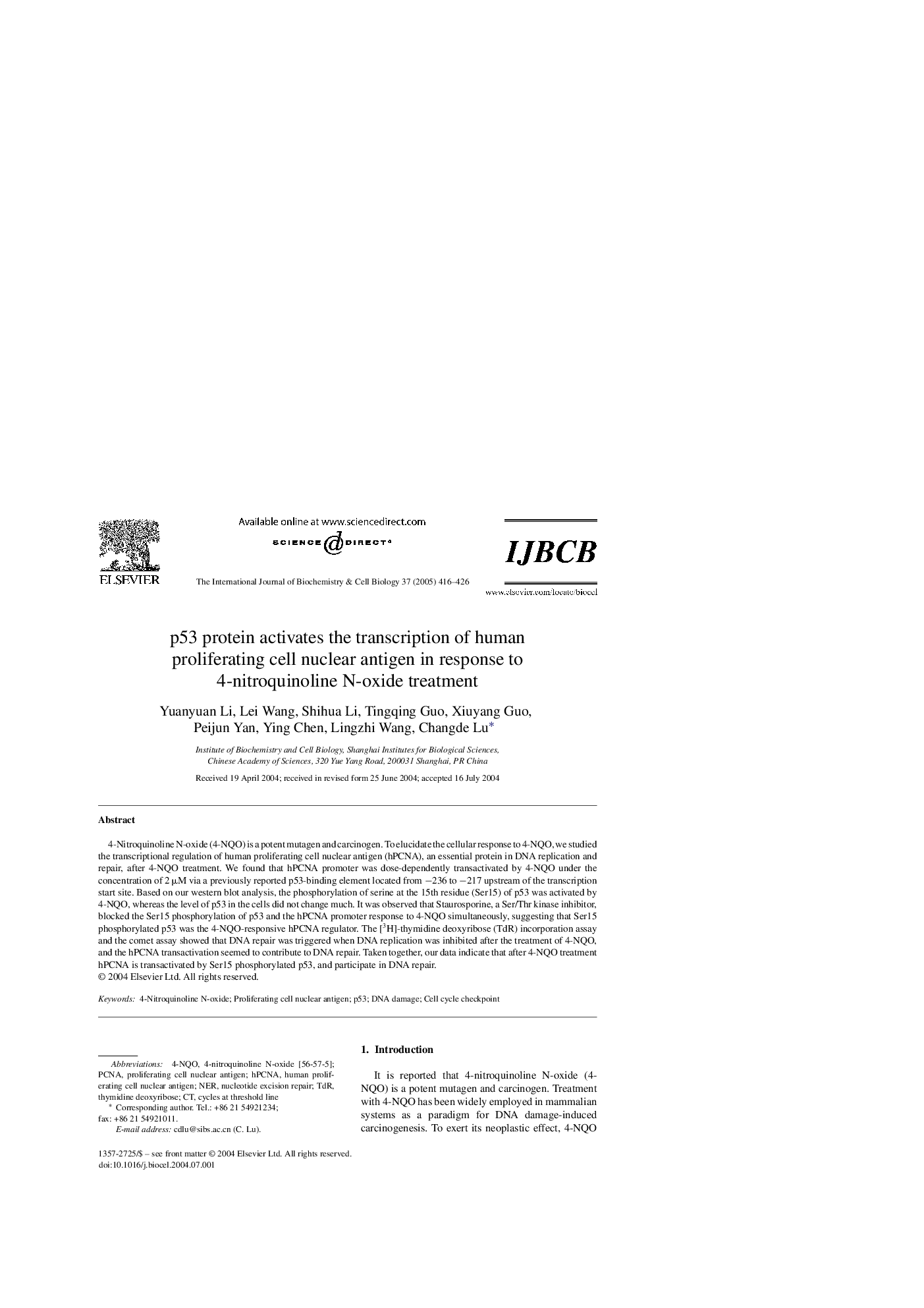| Article ID | Journal | Published Year | Pages | File Type |
|---|---|---|---|---|
| 9890109 | The International Journal of Biochemistry & Cell Biology | 2005 | 11 Pages |
Abstract
4-Nitroquinoline N-oxide (4-NQO) is a potent mutagen and carcinogen. To elucidate the cellular response to 4-NQO, we studied the transcriptional regulation of human proliferating cell nuclear antigen (hPCNA), an essential protein in DNA replication and repair, after 4-NQO treatment. We found that hPCNA promoter was dose-dependently transactivated by 4-NQO under the concentration of 2 μM via a previously reported p53-binding element located from â236 to â217 upstream of the transcription start site. Based on our western blot analysis, the phosphorylation of serine at the 15th residue (Ser15) of p53 was activated by 4-NQO, whereas the level of p53 in the cells did not change much. It was observed that Staurosporine, a Ser/Thr kinase inhibitor, blocked the Ser15 phosphorylation of p53 and the hPCNA promoter response to 4-NQO simultaneously, suggesting that Ser15 phosphorylated p53 was the 4-NQO-responsive hPCNA regulator. The [3H]-thymidine deoxyribose (TdR) incorporation assay and the comet assay showed that DNA repair was triggered when DNA replication was inhibited after the treatment of 4-NQO, and the hPCNA transactivation seemed to contribute to DNA repair. Taken together, our data indicate that after 4-NQO treatment hPCNA is transactivated by Ser15 phosphorylated p53, and participate in DNA repair.
Keywords
Related Topics
Life Sciences
Biochemistry, Genetics and Molecular Biology
Biochemistry
Authors
Yuanyuan Li, Lei Wang, Shihua Li, Tingqing Guo, Xiuyang Guo, Peijun Yan, Ying Chen, Lingzhi Wang, Changde Lu,
